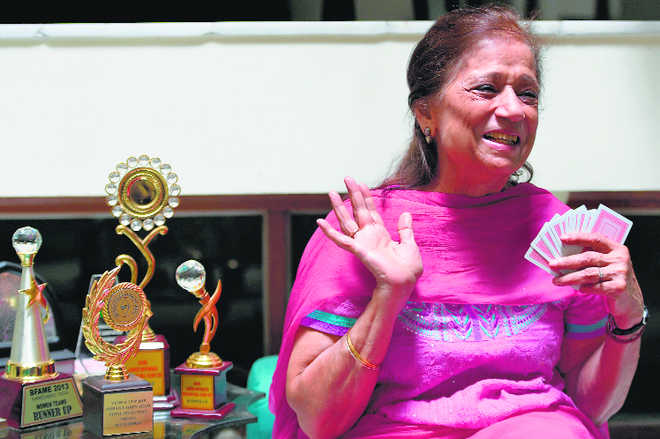
Rita Choksi
Rohit Mahajan
Do you have any idea whether Kurash or Pencak Silat are the names of places or food? Do you know what Sport Climbing is? Well, these are sports in which India will be participating at the Asian Games. Who are the people who play these sports in India? Do you know that the Rollersports team includes a doctor and a computer science student? Or that the Bridge team comprises super-rich players whose average age is 60!
Read on to find out about the possible new heroes from some unknown sports:
Kurash
India would have 14 practitioners of Kurash in Indonesia seeking to pick up a few of the seven gold on offer. But what is Kurash? It’s a wrestling style from central Asia, likely to have originated in Uzbekistan. It has been compared to judo and, indeed, is also referred to as ‘standing judo’ to illustrate the difference between the two sports.
A Kurash match involves two combatants, one in a green jacket and the other a blue jacket. The object is to throw your opponent to the ground to earn points. Throwing your opponent on his/her back wins you the match.
Kurash has been around in India since the turn start of tis century, and India has hosted the junior World Championships and the Asian Championships. The impetus for the sport comes from the desire of the country of its origin, Uzbekistan, to make it a global sport.
India’s team is likely to fetch a few medals at the Asian Games. At the Asian Championships in Pune in March, India won one gold, two silver and 13 bronze medals. Overall, the men finished fourth and the women second. Uzbekistan won the highest number of gold, 10, to become champions. India’s gold winner, Tulika Maan, fights in the 87kg-plus category, but sadly this category isn’t part of the Asiad.
Parikshit Kumar (90kg-plus) is one of India’s leading hopes of a medal from the Asian Games. The 27-year-old from Haryana had won a bronze at the Asian Championships in Pune. The Tokas sisters from Haryana are likely to be among medals as well.
Pencak Silat
The name of this sport might sound like a food dish, but intriguingly, there is an India connect to this new Asian Games event — it’s speculated that ‘Pencak’ may have originated from the Sanskrit word pancha, which means ‘five’. Pencak Silat is now an umbrella term that covers Indonesia’s martial arts. Indonesia’s links with India go a long way back, from the oral history of the country to the arrival of the Tamil Cholas as conquerors in the 13th century. But Pencak Silat was brought to India only six years ago, with an eye on future of the sport in international competitions — this time there are 16 gold medals on offer, a mouth-watering number indeed.
Pencak Silat involves combat, which may involve fighting with bare hands using wrestling moves, or with sticks or (unsharpened) knives, and choreographed movements.
India’s national association is based in Srinagar. The sport was planted in India due to Kashmiri initiatives. Mohammad Iqbal, national coach, is one of the founders of the association. Iqbal, 38, started learning karate as a child because his father wanted him to be unafraid of bullies in school. Iqbal, who runs a hotel in Srinagar, later took up taekwondo and Thant-ta, the Manipuri martial art.
In 2010, he saw Pencak Silat in South Korea during a martial arts festival. He fell in love with it. “It was very exciting, and I decided to learn it,” he says.
The Indonesians wanted to promote it as a sport, too — just as Indians are delighted when teams from across Asia learn kabaddi or kho-kho.
Iqbal founded the national federation in Srinagar in 2012.
Mufti Hamid Yasin, secretary general of the national association, says, the growth of the sport has been phenomenal. “Now 28 states are members of the national association, and we have thousands of players across the country,” he says. “It’s popular among children because there are very little chances of getting injured — you see, there’s no blow or contact with the face in this sport.”
The Indian Olympic Association (IOA) had originally approved a team of 22 but then reduced it to just three! It’s a bewildering move, indicative of the power politics within IOA. Iqbal and Yasin and their wards were disappointed, but hope to do well in Jakarta. “Now we have three kids competing, and we expect them to do well because they have good potential,” says Yasin.
One of the hopes is 28-year-old Naorem Boynao Singh, originally from Manipur but now a martial arts instructor in Bengaluru. The two women in the team, Sonia and Simran, are from Haryana. It’s on these three that the responsibility rests to provide a leg-up to Pencak Silat in India.
Rollersports
Whizzing by on wheels is a fantasy for most kids, and if they can do it well, Rollersports can earn them a medal at the Asian Games. Rollersports had debuted at the 2010 Asian Games, only to be dropped from the Incheon Asiad programme four years later.
Chinese Taipei had won nine medals at the 2010 Asiad at Guangzhou, four of which were gold. India had claimed two bronze medals, in artistic skating. This time, six gold medals are on offer in Palembang, where India will participate in only the roller skating event.
India has four members in the team, two men and two women. One of the ‘men’ is a 20-year-old college student from Ludhiana, Harshveer Singh Sekhon. He will be participating in the 20000-metre road race event, along with Amitesh Mishra, an 18-year-old from Bilaspur, Chhattisgarh. Sekhon first tried skating at six, in order to keep his weight under control. He got hooked to skating and began to train under JS Dhaliwal. “I practise from four to seven in the morning, then attend college from eight to four in the afternoon,” says Sekhon, a computer science student at Guru Nanak Dev Engineering College. There’s another practice session in the evening. Sekhon likes wheels — he has a bronze at university level cycling to his credit.
Harshveer had won four medals, including two gold, in the Open National Roller Skating Championship in Chennai earlier this year. His selection for the Asian Games was a foregone conclusion.
The women’s squad has a doctor — Dr Varsha S Puranik, 30, will also contest in the 20,000-metre race. A consultant with the Cauvery Institute of Health Science in Mysore, she will be seeing Asian Games action for the second time, having finished seventh in Guangzhou in 2010. She started early, at age three, and has represented Karnataka in 21 National Championships!
Bridge
Is bridge a sport? There might be conflicting view on this, but you can’t argue with six gold medals, which are on offer at the Asian Games. India have a 24-member bridge contingent at the Asian Games, and it is quite a motley bunch. Bridge provides the unlikeliest of sportspersons in the Indian contingent — you don’t need to super-fit to be part of the team. The granny of the team, Rita Choksi, is one prime example of this. She is 79 and easily the oldest Indian ‘athlete’ across all sports. She will have company at the bridge venue because there are several other contestants in their seventies in the fray — such as Malaysia’s Lee Hung Fong, 81, the oldest ‘athlete’ at the Games.
If the average age of India’s sport climbing team is 16, the average age of the bridge team is 60. The oldies will be providing a cute diversion from the sweaty, over-energetic younger competitors at the Games. At 57, Raju Tolani is a mere child in the team. He is the India managing director of Swiss steel company Schmolz + Bickenbach. Also part of the team is Kiran Nadar, wife of tech billionaire Shiv Nadar, founder of HCL Technologies.
Hema Deora, wife of the late MP Murli Deora, is in the team as well. The 67-year-old has been a long-time bridge player and describes herself as a bridge aficionado. She has to her credit a win over Bill Gates and Warren Buffet, though she concedes that Gates was just a beginner at the time.
The youngest member of the team? At 37, Sapan Desai is just a baby.
Sport climbing
Going up the wall, that’s what sport climbing is all about. It’s not a plain wall, of course — it has grips, which a climber holds and steps on to go up the wall. The world record for a standard 15-metre wall is 5:48 seconds. This is explosive, exciting stuff.
Over the past two decades, it has become a rage across the world, with millions of new adherents. So why haven’t you heard of this before? Chances are that you have, actually, only it probably didn’t register in your mind. Sport climbing makes its Asian Games debut in Indonesia, and 2020 Tokyo will see its Olympics debut.
The average age of the Indian squad — comprising three climbers — is 16 years. That’s right, three teenagers will represent India in sport climbing in Palembang — Bharath Pereira (18), Chingkheinganba Maibam (15) and Shreya Nankar (16).
There will be three events at Palembang: Speed Climbing, Combined, and Speed Relay.
Shreya got into the sport because her father, Sanjay Nankar, is crazy about mountaineering. At five years, she was already going up the mountains in Himachal with her father. She wanted to climb up all through the year, so Nankar took her to the nearest wall. Shreya is a high achiever — she’s won national and international medals, and rocks her studies, too. Nankar is able to reel off five years of her achievements in less than a minute — right from the day she started climbing January 1, 2014. The selection for the Asian Games was to be made on April 4, but there was a problem — she had her Class X examinations up to March 28. No matter. Father and daughter worked harder than ever before. “She was practising everyday during her exams — three hours daily. She would return from her exam and again practise,” says Nankar. She got into the team. What’s more, she nailed her exam, scoring 93 per cent. It’s been hard work. “No holidays, no parties, no marriage parties”, she says.



























